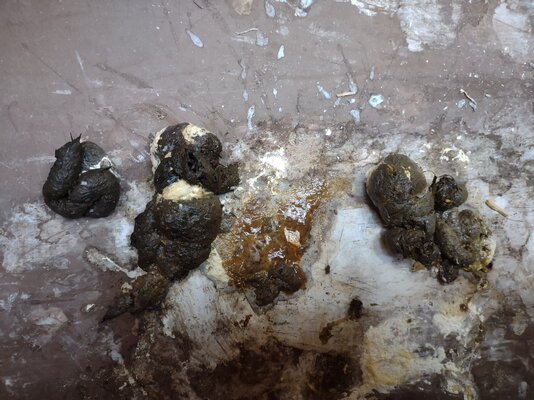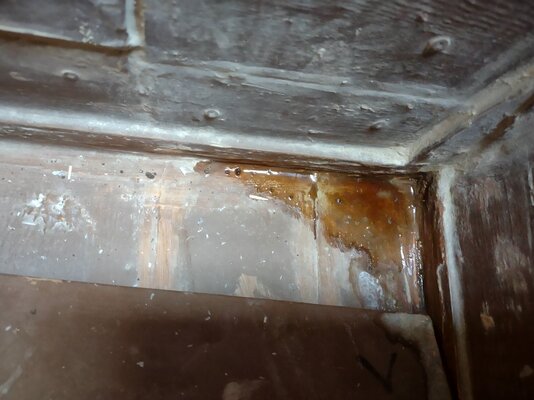Hi BYC,
I'd really value your thoughts.
In our small flock, we have a black rock chicken.
She is about 18 months old. She seems healthy and active. She enjoys her food. She is laying. Healthwise many things are good. But during the night, she sometimes does some crazy poop.
She will produce some normally formed, if slightly damp, poop. But alongside these she will also seem to produce liquid. The coop is on a slope, and this liquid will literally pool in one corner. It is hard to tell if the liquid comes out at the same time as the normal poop, or out by itself.
But every so often, when we clean out the coop, we will find normal poop and a pool of liquid. We have had chickens with Diarrhoea before, and this seems quite different to that.
Take a look at these photos.
01 - Her overnight poop. Generally normal.
02 - The liquid which appears in the corner.
03 - A wider angle shot showing both the poop and the liquid*.
(*Just a note, we use scrape boards rather than softer bedding in this area of the coop... and so the stains in the picture have built up over time, but you do get a sense of some of the liquid trails that have happened).
What do you think is going on?
Grateful in advance for all your thoughts.
I'd really value your thoughts.
In our small flock, we have a black rock chicken.
She is about 18 months old. She seems healthy and active. She enjoys her food. She is laying. Healthwise many things are good. But during the night, she sometimes does some crazy poop.
She will produce some normally formed, if slightly damp, poop. But alongside these she will also seem to produce liquid. The coop is on a slope, and this liquid will literally pool in one corner. It is hard to tell if the liquid comes out at the same time as the normal poop, or out by itself.
But every so often, when we clean out the coop, we will find normal poop and a pool of liquid. We have had chickens with Diarrhoea before, and this seems quite different to that.
Take a look at these photos.
01 - Her overnight poop. Generally normal.
02 - The liquid which appears in the corner.
03 - A wider angle shot showing both the poop and the liquid*.
(*Just a note, we use scrape boards rather than softer bedding in this area of the coop... and so the stains in the picture have built up over time, but you do get a sense of some of the liquid trails that have happened).
What do you think is going on?
Grateful in advance for all your thoughts.







